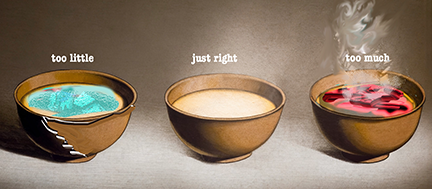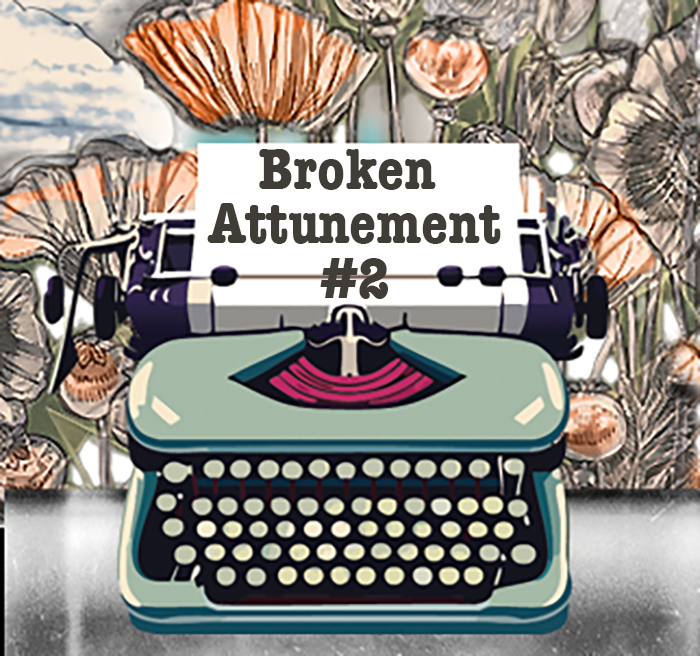EXAMPLE #1—-The Refusal of a Talking Day
A student attending a workshop, came up to author, Frances Weller, and told him she was impacted by an activity of drumming and dancing that he led the day prior. She was in her mid seventies. She asked Weller, as the guide of the contemplative/expressive retreat, to meet with him the next day because she wanted to process what came up for her during the drumming activity.
She said,
"When you started drumming, an old memory came to me that I haven't thought of for years. When I was fifteen, I was a novice at the convent. I had only been there a couple of weeks, when my father died. The Mother Superior called me into her office and told me the news. Then she said to me. 'You may go to the funeral, but if you go, you cannot come back. And if you stay, you cannot cry. I stayed. I lay in my bed every night shaking, trying to keep the tears inside. And when you started drumming, it all came flooding back in."
Francis Weller, The Wild EDGE OF SORROW -––PAGES 81-82
Over Reacting or Under Reacting
When a parent
EXAMPLE #2. Being Ignored or Being Engulfed

We all fail as listeners. We all fail to come along side others perfectly.
One of the conclusions we draw is that it would be better to say nothing than to make matters worse. We freeze when we are faced with a loved one going through trauma.
This leaves a message. It always leaves a message. It sends this thought into the heart of the hurting person: “What I am saying is bringing them so much discomfort– it must be so far out of the norm for human experience that I am wrong to feel it.”
What happens when the reaction is more potent than the traumatized person can handle? This feels engulfing. Imagine a child coming home to say they were harmed by an older child down the street. If the parent quickly moves into action to exact their idea of justice on the neighborhood child— where did the story go?
Like steam it evaporated. The child actually fears the over reaction. It could hurt the family more than the original violation. They also sense that they aren’t respected. They have no voice about how they want to face the harm.
It actually becomes about the childhood hurts and adult vows made by the parent instead of a time for the parent to join the current story with curiosity and a helpful expression of advocacy. The parent may feel so triggered that they can’t stop themselves from taking on the hero role.. You know this is happening when the caregiver has regulation but the actual victim of trauma is silent. This is because their need for closure on their terms was hijacked. What happened to attunement for the child? It evaporated in the heat of the listener’s needs.
“Less is More” Is Not More when Trauma Strikes
Triggers Ignite BIG Reactions But That Leaves The Story Behind
IN THESE EXAMPLES WHAT WOULD ATTUNEMENT MEAN?
For the Novice When her father died A week after she moved to the Convent Community: Read the 7th century writing by St Isaac of Syria "Against zeal"
Against Zeal
A zealous person never achieves peace of mind. And he who is deprived of peace is deprived of joy. If, as is said, peace of mind is perfect health, and zeal is opposed to peace, then a person stirred by zeal is ill with a grievous sickness.
While you presume to stir up your zeal against the sickness of others, you will have banished health from your own soul. You should rather concern yourself with your own healing. But if you wish to heal those that are sick, know that the sick have greater need of loving care than of rebukes.
Zeal is not reckoned among mankind as a form of wisdom; rather it is one of the sicknesses of the soul, arising from narrow-mindedness and deep ignorance.
The beginning of divine wisdom is the serenity acquired from generosity of soul and forbearance with human infirmities.
For he says, ‘You who are strong should bear the infirmities of the weak,’ and Put right the transgressor with a humble spirit’.
St. Isaac said it best. Check your zeal at the door and leave it outside this type of conversation. Whenever we put zeal, even religious zeal, above letting a traumatized person find regulation for their pain or grief we are “in a grievous sickness.” The God given order is this: The singular over the global. The person over the thing. The crying novice sitting across from you is prioritized over your demand for 100% loyalty to the religious order you lead.
GRIEF: In my twenties I had several friends and community acquaintances die. Each time I learned the details of the funeral. And every time I would drag myself to the funeral. Some funerals I ignored. I didn’t ask what my reluctance was about. But that fact was that I would feel shame for weeks after them. Eventually, I sought counsel about what might be going on regarding showing up and supporting others at formal services. I asked a friend that wasn’t a trained listener but she gave me words that guide me forty years later. She shared a simple thing that she lived by…. she said, “It is always the right thing to go to a funeral.” ALWAYS right. I knew that was true and I knew it was in line with her way of living. It wasn’t bragged about but I knew of the vacations she postponed and the travel she would undertake to get to a funeral.
Oh, how I wish she could have advised the Mother Superior in this first example of broken attunement. This lovely woman ached with incomplete grief all the way into her seventieth year!
Whenever we put zeal, even religious zeal, above letting a traumatized person find regulation for their pain or grief we are “in a grievous sickness.” The God given order is this: The singular over the global. The person over the thing. The crying novice sitting across from you over the demand for 100% loyalty to the religious order you lead.
The Temperature of tHE "JUST RIGHT" BOWL
What makes your heart the ‘just right’ place for a person to fall apart? In most cases you are the only one to answer that question. I will offer a few ideas.
1.) Challenge perfectionism. You will not mirror feelings with perfect attunement. The good news is that people are forgiving when they know you will go out of your way to attend to their pain. I think of Job’s comforters. They filled the silences with so much theory about suffering. It stole the focus off of the suffering of a man that lost his children and his vocation in a day. I would rather have a person wanting to be genuinely present than someone that works overtime to say the right thing. You can even admit to your friend that you don’t know what to say. That is better than scrolling through the file of answers to get it right for your friend.
2.) Before you meet with the person visualize a tuning fork. It doesn’t create sound it takes on the stroke of sound waves and takes them inside to echo them back. Zeal is dangerous because it NAMES A DIRECTION and moves to convince before it wades through the murky waters of curiosity. Examine any hopes you bring and hold them so loosely that the listener doesn’t even feel them in the encounter.
3) Attunement: THE JUST RIGHT BOWL: This is a dependent and prayerful posture. Inside you carry hopes that the story will resolve and give your friend peace someday. But you listen to their despair and mirror it accurately. You stay there as if that future day isn’t assured for them. You match their doubts and accept their questions. It would be your discomfort that is triggered if you speak to fix their emotions or go get justice and bring it back to them like a trophy. This is their work, not yours. I often pray that I will not go smaller or bigger than their emotions in the moment.
SUMMARY: You are not a bowl of dismissing and cold ice cubes. But, neither are you running hot like a steaming engine to solve or control things. You disrespect the soul of the other if you engulf them. Your place is the JUST RIGHT bowl. Listening with love guiding every minute.
| not assigned | 1 | listening corner |
